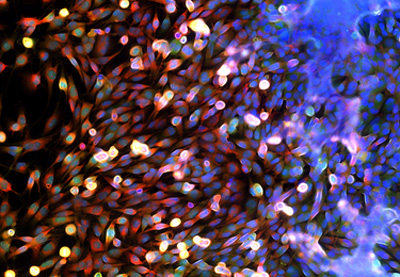AAA fully acquires Atreus Pharmaceuticals; enrolls first patient in a Phase I/II clinical trial for Annexin V-128
Posted: 8 January 2015 | Advanced Accelerator Applications S.A.
Advanced Accelerator Applications S.A. announced that it has acquired the remaining 49.9% of Atreus Pharmaceuticals Corporation, a development-stage biopharmaceutical company headquartered in Ottawa, Canada…


Advanced Accelerator Applications S.A. (“AAA” or “the Company”), an international specialist in Molecular Nuclear Medicine (MNM), announced today that it has acquired the remaining 49.9% of Atreus Pharmaceuticals Corporation, a development-stage biopharmaceutical company headquartered in Ottawa, Canada and focused on the development of proprietary molecular imaging products aimed at imaging apoptosis and necrosis based on Annexin V. Atreus Pharmaceuticals Corporation is now a fully owned AAA subsidiary and has been renamed AAA Canada.
AAA also announces the enrollment of the first patient in the Phase I/IIa clinical trial to evaluate the safety, pharmacokinetics and dosing of key diagnostic product candidate 99mTc-rhAnnexin V-128 in patients with rheumatoid arthritis or ankylosing spondylitis. The study will also assess the ability of 99mTc-rhAnnexin V-128 to identify the disease and to monitor the effectiveness of current drug treatment. 99mTc-rhAnnexin V-128 is a single photon emission computed tomography (SPECT) radiopharmaceutical agent being developed to detect early cell stress and apoptosis (programmed cell death) in a number of pathological conditions including rheumatoid arthritis and ankylosing spondylitis.
In this Phase I/IIa clinical trial 20 patients will be enrolled to receive two doses of 99mTc-rhAnnexin V-128, one at baseline and one after drug treatment. The principal investigator of the study is Prof. John Prior, University Hospital of Lausanne, Switzerland.
A Phase I trial has been completed at the University of Ottawa Heart Institute in Canada to assess the safety, pharmacokinetics and dosing of 99mTc-rhAnnexin V-128 in 12 healthy volunteers. The results are currently being analysed. The principal investigator of this study is Dr Terrence Ruddy.
Stefano Buono, Chief Executive Officer of AAA, commented: “These two announcements are key milestones in AAA’s progress. The acquisition of the remaining 49.9% of Atreus has been triggered by a number of successful milestones achieved during the development of Annexin V-128. I am delighted that Atreus’ founder, Bill Dickie, will now be President and CEO of AAA Canada and will continue working with us in what we expect will be the development of products based on Annexin V. We are also very excited to be initiating the first of a series of new Phase I/II clinical trials aimed at understanding the potential of 99mTc-rhAnnexin V-128 in different indications.”
Bill Dickie, President and Chief Executive Officer of AAA Canada, added: “99mTc-rhAnnexin V-128 potentially has multiple applications in cardiology, oncology and autoimmune disorders as it detects the fundamental process of apoptosis. Many diseases are increasingly treated with powerful and expensive biologic drugs. An imaging biomarker of apoptosis has the potential to be an important personalized disease management tool.”
Prof. John Prior said: “Early diagnosis and effective treatment management is crucial for the treatment of diseases such as rheumatoid arthritis and ankylosing spondylitis, and can lead to a significantly improved quality of life for patients suffering from these progressive, debilitating diseases.”
Dr Terrence Ruddy added: “99mTc-rhAnnexin V-128 imaging has many exciting potential applications. The single vial 99mTc-rhAnnexin V-128 kit being developed by AAA is convenient to use and has the potential to become a cost effective tool in the diagnosis and management of a wide range of diseases.”
AAA has an exclusive, worldwide license to develop proprietary molecular imaging products based on Annexin V-128.
About 99mTc-rhAnnexin V-128 and SPECT
99mTc-rhAnnexin V-128 is a single photon emission computed tomography (SPECT) radiopharmaceutical agent in development that aims to detect early cell stress and apoptosis in vivo to assess programmed cell death in a number of pathological conditions, including rheumatoid arthritis, ankylosing spondylitis and cardiovascular diseases.
The product, based on a specifically designed recombinant form of Annexin V-128, is being developed as a single lyophilized vial 99mTc-rhAnnexin V-128 kit by AAA.
Wild-type Annexin, labeled with Technetium-99m (Tc-99m), a medical isotope widely used in diagnostic imaging, has been studied extensively. In previous trials, Tc-99m labelled Annexin has demonstrated the ability to image cellular apoptosis and necrosis – conditions associated with a variety of debilitating or fatal medical disorders including rheumatoid arthritis, Crohn’s disease, Alzheimer’s disease, myocarditis, cardiac transplant rejection, acute myocardial infarction and unstable atherosclerotic carotid artery disease. In addition, Tc-99m labelled Annexin has been used to evaluate the response to treatment for lymphoma and lung cancer.
SPECT is a molecular nuclear diagnostic imaging technique in which a radioisotope such as Technetium-99m is injected into a patient through the bloodstream and reaches the lesion where it emits gamma rays that are detected by SPECT cameras. SPECT is used to diagnose a wide range of conditions within oncology, cardiovascular diseases, neurological disorders and other diseases in their early stages.
Related conditions
Arthritis, Crohn’s disease, Heart disease
Related organisations
Advanced Accelerator Applications S.A.



